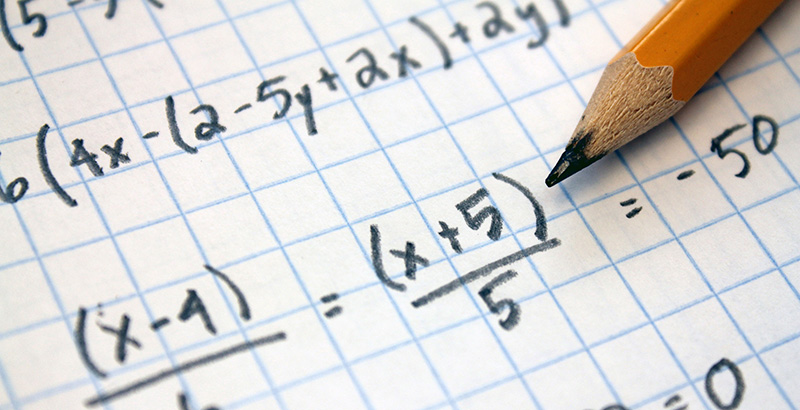Hipps: Solving for X — We’re Giving Away $10M in Grants for Proposals to Boost Algebra Success for Latino and Black Students, Like Me

In school, the test, the grade and the academic outcome often get the balance of attention. But the interplay between how a student experiences school and the technical aspects of teaching and learning can have a profound impact on children’s success. In math, this is particularly true for how Black students, like me, and Latino students experience our education system.
As an elementary school student, I loved school. Especially math. And I was great at it; I always got the highest grades possible. That is, until my middle school math placement exam.
For whatever reason, I didn’t test well that day. And because of that one result, my middle school placed me in a class for students with learning disabilities, despite my otherwise strong academics. Nobody spoke to my parents or to me about what happened or what I needed to improve on, or why I was suddenly in a class significantly below my skill level. It was devastating, because I’d long dreamed of putting my love for math and science together to become an engineer like my father.
It took me the rest of that year to test out of lower-level math classes, and by that time, I had missed a full year of math development. This sort of tracking — putting up barriers to advancement based on false assumptions about ability and worthiness — is all too common for Black students, Latino students and young people learning English. The setbacks can be life-altering.
I was really fortunate. My parents helped advocate for me, and I eventually caught up. I transferred schools and went on to earn two degrees in chemical engineering. But our education system should do better, and I believe philanthropy can help provide some of the catalytic change the system so desperately needs.
At the Bill & Melinda Gates Foundation, we are fighting hard to advocate for pathways to success for K-12 Black and Latino students and for students experiencing poverty. One of the most important milestones on that pathway is Algebra 1. At the core of Algebra 1 is solving the linear equation — finding X, the unknown.
Our X is how we might design a student experience in algebra that amplifies the skills and assets of more students, that makes mathematics a problem-solving journey rather than a test of worthiness, that guides students toward discovering the power of math.
Since 2007, the Gates Foundation has administered bi-yearly Grand Challenges that invite high-risk, high-reward proposals from diverse stakeholders on a range of important issues facing communities. This year, we’re calling on educators, innovators, school administrators and community leaders to Balance the Equation: A Grand Challenge for Algebra 1, with an explicit focus on supporting Black and Latino students, as well as students who are experiencing poverty and those who speak a language other than English. This Grand Challenge will ultimately identify up to 10 grantees, each of whom will receive up to $1 million over two years to design solutions to make Algebra 1 more accessible, relevant and collaborative.
Why Algebra 1? Research has shown that Algebra 1 is a key on-track marker for American students’ future success. Students who do not complete Algebra 1 have only a 20 percent chance of graduating from high school, shutting them out from a college degree, in-demand careers and higher incomes.
Behind every Grand Challenge are real people with real problems, and this year’s challenge is especially personal for me because I believe all students, especially our priority students in this effort, deserve to be able to dream big like I did.
To learn more about Balance the Equation, visit our website and apply.
So let’s put our heads together and solve this challenge. Can we give our communities of color an opportunity to take control of their destinies? Can we help make Algebra 1 a gateway to student success, instead of a gatekeeper from achievement?
We think it’s possible to balance this equation, but we need your help.
Henry Hipps is deputy director of K-12 education for the Bill & Melinda Gates Foundation.
Disclosure: The Bill & Melinda Gates Foundation provides financial support to The 74.
Get stories like these delivered straight to your inbox. Sign up for The 74 Newsletter

;)